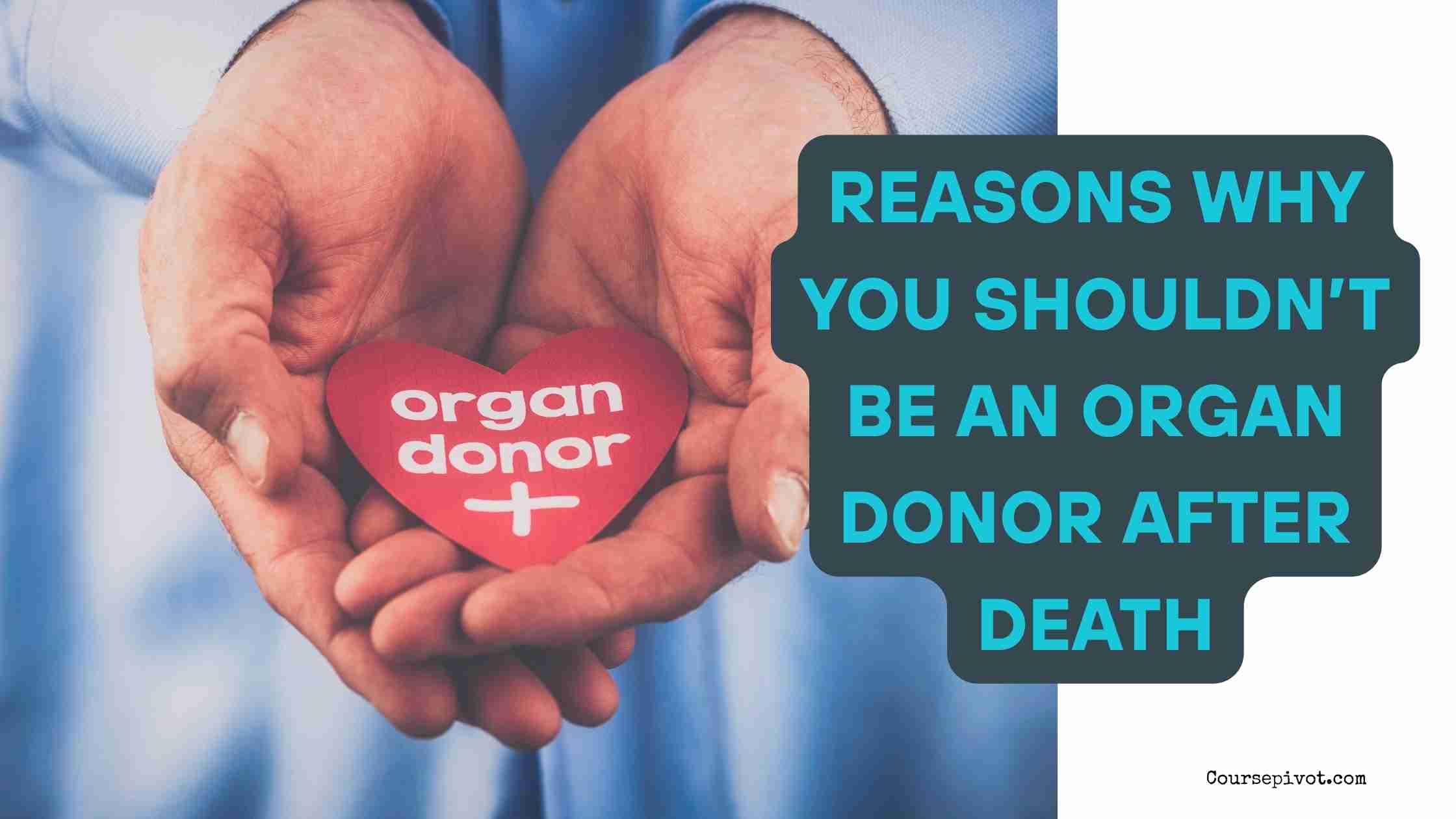
Reasons Why You Shouldn’t Be an Organ Donor After Death
Organ donation is often talked about as a noble, selfless act—and in many ways, it is. But what’s rarely discussed are the personal, spiritual, ethical, and emotional reasons why some people choose not to become organ donors after death.
I’ve had long conversations with family members about this. Some of them have signed up to be donors without a second thought. Others, like myself, have hesitated—not because we don’t want to help others, but because the decision is far more complicated than most people assume.
- Read our blog on 20 things to be passionate about or 100 reasons to stay alive
If you’ve ever felt unsure about checking that box on your driver’s license or donor registry, you’re not alone. Here are some of the reasons why people choose not to become organ donors after death, and why that choice deserves just as much respect as choosing to donate.
1️⃣ Religious or Spiritual Beliefs
Many people believe the body should remain whole after death, based on their faith or spiritual traditions. In some cultures, tampering with the body—especially after death—is considered a disruption of the soul’s journey or a violation of sacred teachings.
For me personally, this was a big part of the hesitation. I needed time to reconcile modern medicine with deep-rooted beliefs I grew up with. Some families find peace in donation; others don’t. Neither decision is wrong.
2️⃣ Concerns About the Death Process
There’s a common fear that doctors might not try as hard to save you if you’re an organ donor. While this idea is usually dismissed by medical professionals, it’s still a deeply rooted concern for many people. Some fear being declared “brain dead” too quickly or prematurely to preserve organs.
Whether justified or not, this worry lingers in the minds of many, especially when stories of medical mistakes circulate online.
3️⃣ Mistrust in the Medical System
Let’s be honest: not everyone trusts the healthcare system. From racial disparities in care to stories of unethical practices, some people feel uncomfortable giving the system control over their body—even after death.
I’ve seen firsthand how people from marginalized communities often feel excluded or mistreated by hospitals. That lack of trust extends to the idea of donating organs, and it’s a valid reason for wanting to opt out.
4️⃣ Desire for a Natural Burial
If you’re someone who wants a natural or traditional burial—free of chemical preservation, cutting, or removal of organs—donating may not align with those wishes. Some people want to be buried whole, undisturbed, and returned to the earth exactly as they were.
This preference is especially common among people who follow certain cultural or ecological practices.
5️⃣ Family Opposition or Cultural Pressure
Even if you personally support donation, your family may strongly oppose it—and in many places, they have the final say. If your loved ones view organ removal as disturbing, invasive, or disrespectful, it can create conflict or distress during a very emotional time.
I’ve known people who revoked their donor status just to spare their family the anxiety of making a tough decision after death.
6️⃣ Emotional Discomfort with the Idea
It’s hard to admit, but some of us simply feel uneasy about our bodies being cut open or used after we die. It’s not always rational—it’s emotional. And it’s okay. We’re allowed to have complicated feelings about death, legacy, and what happens to our physical selves.
Your body is yours, and that includes your right to decide what happens after death—even if that decision is “nothing.”
7️⃣ Not Believing It Will Make a Difference
There are people who doubt the effectiveness or fairness of the organ donation system. They may wonder:
Will my organs really save someone’s life? Or are they more likely to be wasted, mishandled, or given based on status instead of need?
These doubts—whether based on fact or fear—can influence someone to withhold consent and walk away from donor registration.
8️⃣ Medical Disqualifications or Health Concerns
Some people assume they’d be disqualified anyway due to past illnesses, surgeries, or lifestyle habits. So they never register. Others don’t want their medical history scrutinized after death, especially when it involves sensitive or personal health issues.
Privacy concerns matter, even after death.
9️⃣ The Desire for Peaceful Closure
Death is hard enough on the family. Some individuals don’t want their body to go through the added trauma of surgery or post-mortem recovery, especially when families are still grieving. They want their loved ones to say goodbye to a body that is whole, untouched, and at rest.
This desire is not about selfishness. It’s about seeking peace—for themselves and those they leave behind.
A Personal Decision That Deserves Respect
Organ donation saves lives. That’s undeniable. But so is the fact that your body is your own, and what happens to it after death is one of the most personal decisions you’ll ever make.
We often talk about becoming a donor as the “right” thing to do. But let’s be clear—not being an organ donor is also a valid, deeply personal choice, one that can be shaped by culture, religion, trauma, mistrust, or just gut feeling.
If you’re unsure about what to do, take your time. Talk with your family. Explore your beliefs. And when you’re ready to document your decision, make sure it reflects your truth.
Cite this article
You can copy and paste your preferred citation format below.
Martin, L. & Arquette, E.. (2025, May 14). Reasons Why You Shouldn’t Be an Organ Donor After Death. Coursepivot.com. https://coursepivot.com/blog/reasons-why-you-shouldnt-be-an-organ-donor-after-death/



